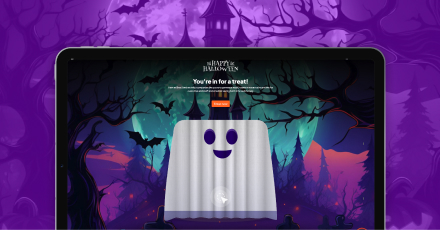2021 leading into 2022 will arguably be one of the hardest periods in recent times for recruiting new talent, as well as retaining existing staff. Some news reports have already predicted an influx of staff moving companies as the return to work is fully resumed, and employees no longer accept below average benefits, or lack of workplace culture, or incentives.
A key mistake often made when creating attractive packages to attain workers, no matter the industry, is assuming that potential recruits are actually interested in the rewards programs and packages being offered by companies. No one employee or human is motivated by the same thing; so is having a standard rewards or incentives package even efficient?
We wanted to answer that, by properly surveying and understanding what makes the younger workforce feel rewarded. At BeeLiked we offer a gamified incentive program, perfect for motivating sales teams, channel partners, survey respondents, or loyal customers. So we were intrigued to see what is actually most popular to the end employee and the current generation of younger workers…

Britain’s Best Incentives; according to the results
We have analyzed data on the most requested benefits by UK workers, broken down into distinct sets of demographics, making it far easier to see the most appealing employee benefits packages that companies should be offering, as part of their recruitment efforts.
In short, these findings will allow companies to base their employee benefits programs on current data, and not on personal opinions that might have a negative impact on recruitment and retention rates. We have offered our expertise and analysis throughout against the biggest findings of the survey.
In order of popularity, the top 10 most requested employee benefits from UK workers in 2021 are:
- Financial bonuses
- Increased paid leave allowance
- Additional ‘early-finish’ days
- Wellness related packages
- Company dinners and social events
- Vouchers or gift cards of choice for food
- Complimentary lunch or dinner
- Vouchers or gift cards for experiences (events or classes)
- Gym or fitness membership
- Vouchers or gift cards of choice for drinks
Key insights and analysis
Finding #1
- 37% of UK workers want financial bonuses as their biggest reward for hard work. Least important was branded company clothing, with only 12% of employees wanting this.
BeeLiked analysis: “It’s no surprise that financial bonuses are the most requested reward type for UK workers. Everyone wants to earn more for working harder; larger salaries and bonuses that reflect performance and seniority of a role are key to retaining staff looking to progress through a company. Without the promise of higher wages and bonuses for reaching the next level of the business, talent will look elsewhere very quickly. Branded clothing does give a semblance of inclusivity to new employees, so can be an effective way of making new recruits feel welcome, but this novelty will wear off over time.”
Finding #2
- Younger employees favour work life balance and wellness packages. The ‘extra time off’ and wellness packages are the most popular benefits amongst those new to the workplace. Workers in their late 20s value financial rewards most.
BeeLiked analysis: “The generation entering the job market currently values mental health extremely highly, and prioritize it. Mental health has been much less taboo in the younger generation, and they are hyper-aware of this in the workplace. Offering a good work-life balance, as well as wellness packages, show that companies value an employee’s mental health just as much as they do themselves, which can be an attractive proposition to new talent, or in retaining workers. More often, when being rewarded for hard work, this can sometimes be at the cost of overtime or extra hours to employees, so a wellness package to thank them and caveat this extra workload is not a surprise to see.”
Finding #3
- Financial incentives are almost twice as important to female workers than males.
BeeLiked analysis: “The gender pay gap is playing an increasingly crucial role in recruitment. With the public now far more aware of the disparity between male and female pay increasing over time as careers progress, these findings show that female workers are prioritizing financial incentives to ensure they do not become a part of this gulf in pay. Men arguably feel safer in the same knowledge that they will be ensured a fair salary for their work, which is why financial incentives are lower down the list of male priorities.”
Finding #4
- Londoners are also lowest in the UK for time off work, with only one in four ranking this as a top 5 reward. Londoners are least motivated by financial rewards compared to workers across the rest of the UK too. Only 29% of workers in the capital ranked it as a top reward, which is 10% less than the national average. Financial rewards are most important to the Yorkshire area, with 50% ranking this as their top workplace reward and incentive. This inversely correlates to the average salary in the two respective areas; with London being the highest paid location in the UK, and Yorkshire being one of the lowest, it makes sense that people with existing high salaries are less concerned about earnings.
BeeLiked Analysis: “With working in the capital having the perception of being extremely fast-paced, as well as the commute consisting of stressful journeys on public infrastructure including the tube, we initially predicted that rest and recovery via longer holidays and increased time off work would be extremely important to Londoners. However, the data shows quite the opposite; this could be down to wanting to be shown to work the hardest all-year-round, with taking holidays or time off in lieu as thanks from the employer, perhaps being considered a sign of weakness in more toxic companies.”
Finding #5
- Food packages as an employee incentive have decreased significantly in popularity compared to previous years; this benefit didn’t even make the top 10 for 2021.
BeeLiked analysis: “Using food packages as a way to thank employees for hard work or for reaching their targets has long been decreasing in popularity for employees. The appeal just isn’t there anymore for workers of all ages and demographics, so this should be taken into account. Being sent a hamper of some sort at Christmas is quite frankly expected from most employees at a good company anyway in 2021, so it’s considered as a standard nicety that accompanies a role. Food has not ranked highly as something employees value as a reward at all.”
For more information about employee engagement or incentivizing teams, please visit the rest of our blog posts.
Methodology
BeeLiked surveyed 1,000 adults aged 30 or under in September 2021, via OnePoll.



















